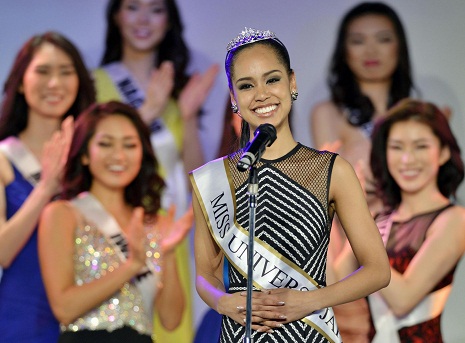But reaction to her win has been both positive and negative, with some people questioning whether a multiracial person can truly represent Japan. According to local media, even she was initially a little wary about entering the pageant because she was "hāfu," the Japanese word used to refer to multiracial or multi-ethnic half-Japanese people.
"The selection of Ariana Miyamoto as this year`s Miss Universe Japan is a huge step forward in expanding the definition of what it means to be Japanese," filmmaker and co-director of the film "Hafu," Megumi Nishikura told NBC News, "The controversy that has erupted over her selection is a great opportunity for us Japanese to examine how far we have come from our self-perpetuated myth of homogeneity while at the same time it shows us how much further we have to go."
According to the film, "Hafu: The Mixed-Race Experience in Japan," 20,000 half-Japanese people are born in Japan each year, including both multiethnic and multiracial people.
"In a country where the majority of fashion beauty magazines and TV shows are reigned by `hāfu` models and actors," filmmaker and co-director of the film "Hafu," Lara Perez Takagi told NBC News, "It was actually about time that a mixed-race Japanese girl won the Miss Universe pageant."
More about:
















































